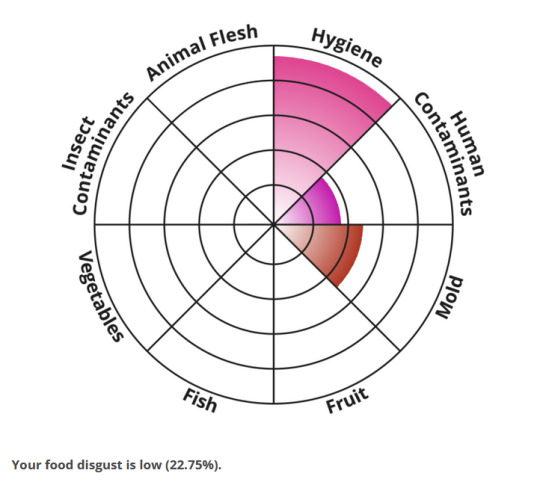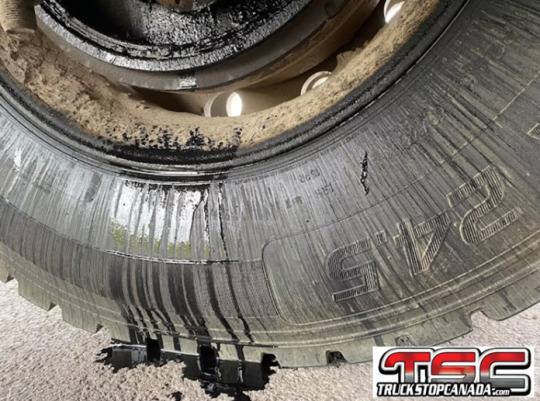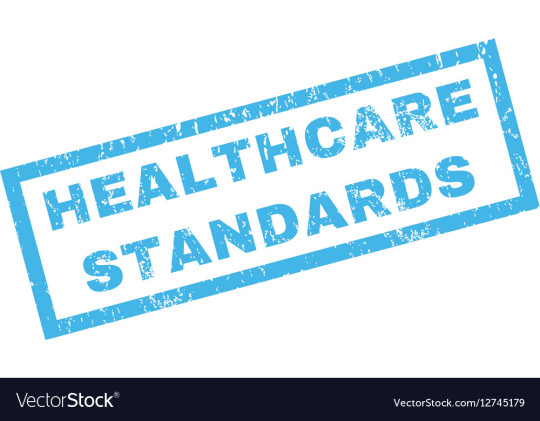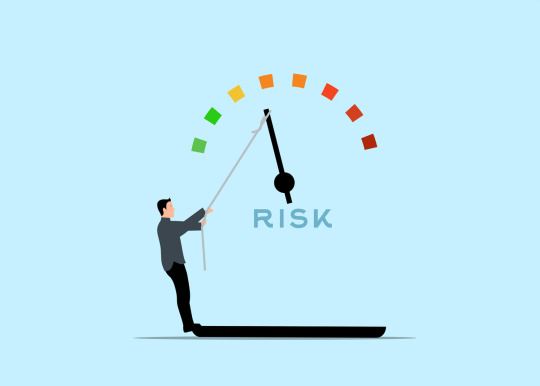#Compliance with Safety Standards
Text

Food service worker diagnosis
#talk#Mold is safe to remove in some instances but not most any building with unhygienic practices in one corner has it in the kitchen too#You get given food by strangers any time you go to a restaurant it is not the concept of a person you don't know that unnerves you it is a#lack of regulation and confirmed compliance to safety standards#Which is why everywhere is legally required to have their safety score framed in a place visible to customers#Which btw speaking as a food service worker anything under an 85 veers into serious risk territory because restaurants are stricter on#Inspection days. So really you want to be subtracting 5-10 points from any given rating and judging based on that.#Like I'm not saying high levels of disgust boil down to a lack of exposure to the reality of food service and distribution but I do think#most people would be more confident and thus less disgusted by certain things if they just understood them better#Hence my previous post.
7 notes
·
View notes
Text
International Roadcheck 2024: Essential Insights for Truck Drivers
Every year, the Commercial Vehicle Safety Alliance (CVSA) conducts the International Roadcheck, a 72-hour blitz aimed at enhancing the safety of commercial motor vehicles and drivers. This year, the event took place from May 14-16, 2024, with a particular focus on checking for controlled substances and alcohol possession, as well as tractor protection and anti-bleed back systems.
Why is the…

View On WordPress
#annual roadcheck#anti-bleed back systems#brake system checks#business#commercial motor vehicle inspections#commercial truck regulations#commercial trucking safety#commercial vehicle safety#compliance in trucking#CVSA inspections#CVSA Roadcheck#DOT compliance#driver safety#driver violations#drug and alcohol testing#Freight#freight industry#Freight Revenue Consultants#hours-of-service compliance#international roadcheck 2024#logistics#road safety blitz#safety inspections#safety standards#small carriers#tractor protection systems#Transportation#truck driver tips#truck inspections#Trucking
0 notes
Text

Pessoal, segurança do trabalho é algo muito muito sério.
Você já viu 1 capacete? e 2 capacetes?
E 12.000 capacetes???
Pois este foi o número de acidentes de trabalho que ocorreram no último ano envolvendo a cabeça de alguém. Veja mais...
https://www.linkedin.com/posts/robsonescobar_sst-seguranaexanotrabalho-nr-activity-7191898138754895872-UEdk?utm_source=share&utm_medium=member_desktop
0 notes
Text
The Evolution of Healthcare Standards: Past, Present, and Future

The Evolution of Healthcare Standards: Past, Present, and Future
In the ever-evolving landscape of healthcare, healthcare standards serve as the bedrock upon which the industry's pillars of quality, safety, and compliance are built. From the rudimentary practices of the past to the innovative methodologies of the future, the journey of healthcare standards is a testament to the unwavering commitment to excellence and patient-centered care. Let's embark on a journey through time to explore the evolution of healthcare standards, integrating key sub keywords such as medical regulations, quality assurance, accreditation standards, patient safety, and healthcare compliance into our narrative.
Understanding Healthcare Standards
At its core, healthcare standards encompass a comprehensive set of guidelines, protocols, and best practices that govern various aspects of patient care, medical procedures, and organizational operations within the healthcare ecosystem. These standards are meticulously crafted to ensure quality assurance, promote patient safety, and uphold medical regulations and accreditation standards set forth by regulatory bodies and professional organizations.
The Past: Foundation and Progression
The historical roots of healthcare standards can be traced back to ancient civilizations, where rudimentary medical practices and healing traditions laid the groundwork for modern healthcare protocols. Over time, as medical knowledge advanced and scientific breakthroughs reshaped the landscape of medicine, the need for standardized practices and healthcare compliance became increasingly apparent.
One of the earliest examples of healthcare standards can be found in the Hippocratic Oath, a solemn vow taken by physicians in ancient Greece to uphold ethical principles and prioritize patient safety and well-being. As medicine evolved, so too did the need for comprehensive quality assurance measures and medical regulations to ensure the delivery of high-quality care to patients.
The Present: Global Harmonization and Digital Transformation
In the modern era, healthcare standards have undergone a profound transformation driven by globalization, technological innovation, and a growing emphasis on patient-centered care. International organizations such as the World Health Organization (WHO) and the International Organization for Standardization (ISO) have played a pivotal role in harmonizing healthcare standards on a global scale, fostering collaboration and ensuring healthcare compliance across borders.
Moreover, the digital revolution has revolutionized the way healthcare is delivered, monitored, and managed. Electronic health records (EHRs), telemedicine platforms, and health information exchanges (HIEs) have become integral components of modern healthcare systems, necessitating the development of interoperability standards and robust quality assurance protocols to safeguard patient data and promote seamless communication.
The Future: Innovations and Challenges Ahead
As we look ahead to the future of healthcare standards, several key trends and developments are poised to shape the trajectory of the industry. Advancements in artificial intelligence (AI), machine learning, and big data analytics hold immense potential to revolutionize clinical decision-making, enhance patient outcomes, and optimize resource allocation. However, with these advancements come new challenges related to data privacy, cybersecurity, and ethical considerations, highlighting the importance of maintaining medical regulations and ensuring healthcare compliance in an increasingly digital world.
Moreover, the ongoing COVID-19 pandemic has underscored the need for agile, adaptable healthcare standards that can withstand unforeseen challenges and promote resilience within healthcare systems. From infection control protocols to telehealth guidelines, the future of healthcare standards will be characterized by flexibility, innovation, and a steadfast commitment to improving patient safety and well-being.
Conclusion
In conclusion, the evolution of healthcare standards represents a remarkable journey of progress, innovation, and continuous improvement. From ancient healing traditions to cutting-edge technologies, healthcare standards have played a pivotal role in shaping the way we deliver, receive, and experience healthcare. As we navigate the complexities of modern healthcare, let us remain steadfast in our commitment to upholding the highest standards of quality assurance, patient safety, and healthcare compliance—for the betterment of all.
Through it all, the keyword "healthcare standards" remains at the heart of our narrative, serving as a constant reminder of the importance of standardization, accountability, and excellence in our collective pursuit of better health outcomes for generations to come.
0 notes
Text
Latest AI Regulatory Developments:
As artificial intelligence (AI) continues to transform industries, governments worldwide are responding with evolving regulatory frameworks. These regulatory advancements are shaping how businesses integrate and leverage AI technologies. Understanding these changes and preparing for them is crucial to remain compliant and competitive.
Recent Developments in AI Regulation:
United Kingdom: The…

View On WordPress
#AI#AI compliance#AI data governance#AI democratic values#AI enforcement#AI ethics#AI for humanity#AI global norms#AI human rights#AI industry standards#AI innovation#AI legislation#AI penalties#AI principles#AI regulation#AI regulatory framework#AI risk classes#AI risk management#AI safety#AI Safety Summit 2023#AI sector-specific guidance#AI transparency requirements#artificial intelligence#artificial intelligence developments#Bletchley Declaration#ChatGPT#China generative AI regulation#Department for Science Innovation and Technology#EU Artificial Intelligence Act#G7 Hiroshima AI Process
1 note
·
View note
Text
#Warehouse compliance#Arvist AI#loading dock optimization#warehouse efficiency#productivity increase#data-driven warehouse management#regulatory compliance#safety standards#AI in logistics#existing infrastructure optimization
0 notes
Text
Flammable Storage Cabinet

A flammable storage cabinet is a specialized piece of equipment designed to safely store flammable liquids and materials in various industrial, laboratory, or commercial settings. Enhanced with 38 mm of fire insulation
0 notes
Text
Little P.Eng.: Delivering Expert Flange Design Services as per ASME Sec. VIII Div. 1, Appendix 2
Flange design plays a critical role in ensuring the safety and integrity of pressure vessels and piping systems. When it comes to designing flanges as per ASME (American Society of Mechanical Engineers) Sec. VIII Div. 1, Appendix 2 for ABSA (Alberta Boilers Safety Association) submission, it is crucial to rely on the expertise of a trusted engineering firm. Little P.Eng. is a renowned engineering consultancy that specializes in providing comprehensive flange design services. With their deep understanding of ASME codes and regulations, they are well-equipped to assist clients in meeting ABSA requirements with precision and efficiency.
Expertise in ASME Sec. VIII Div. 1, Appendix 2:
Little P.Eng. prides itself on its extensive knowledge and experience in working with ASME codes, specifically Section VIII Division 1. Appendix 2 of this section provides detailed guidelines for flange design, including bolt loads, gasket constants, and allowable flange stresses. Compliance with these specifications is crucial for ensuring the safety and reliability of pressure vessels. The team at Little P.Eng. possesses a deep understanding of this appendix and keeps up-to-date with the latest revisions, ensuring their designs meet the most current standards.
Accurate and Reliable Flange Design:
When it comes to flange design, precision is paramount. Little P.Eng. employs highly skilled engineers who utilize advanced design software and tools to accurately calculate critical parameters such as bolt loads, gasket constants, and flange stresses. By leveraging their expertise and cutting-edge technology, they deliver robust and reliable designs that are tailored to each client's specific requirements. The team ensures that the design complies with the ASME code, meeting the stringent ABSA submission criteria.
Compliance with ABSA Requirements:
ABSA, as the regulatory authority in Alberta, Canada, mandates strict adherence to safety standards for pressure vessels and piping systems. Little P.Eng. understands the ABSA submission process and the specific requirements that need to be met. Their flange design services are customized to comply with ABSA regulations, enabling clients to obtain necessary approvals for their projects. By engaging Little P.Eng., clients can rest assured that their flange designs will undergo a thorough review process, meeting all ABSA requirements.
Collaborative Approach and Client Satisfaction:

Conclusion:
When it comes to flange design services as per ASME Sec. VIII Div. 1, Appendix 2 for ABSA submission, Little P.Eng. stands out as a reliable and experienced engineering firm. Their deep understanding of ASME codes, expertise in flange design, and commitment to compliance with ABSA requirements make them the go-to choice for clients seeking precision and reliability. By partnering with Little P.Eng., clients can ensure the safety and integrity of their pressure vessels and piping systems, while also meeting the necessary regulatory standards.
Keywords:
Flange design, ASME Sec. VIII Div. 1, Appendix 2, ABSA submission, Little P.Eng., pressure vessels, piping systems, compliance, design calculation, bolt loads, gasket constants, flange stresses, safety, engineering firm, precision, reliability, regulatory standards, ABSA requirements, client satisfaction.
Tags:
Meena Rezkallah
Little P.Eng.
safety
piping systems
engineering firm
reliability
client satisfaction
pressure vessels
Flange design
ASME Sec. VIII Div. 1
Appendix 2
ABSA submission
compliance
design calculation
bolt loads
gasket constants
flange stresses
precision
regulatory standards
ABSA requirements
Engineering Services
Pipe Stress Analysis Services
Located in Calgary, Alberta; Vancouver, BC; Toronto, Ontario; Edmonton, Alberta; Houston Texas; Torrance, California; El Segundo, CA; Manhattan Beach, CA; Concord, CA; We offer our engineering consultancy services across Canada and United States. Meena Rezkallah.
#Meena Rezkallah#Little P.Eng.#safety#piping systems#engineering firm#reliability#client satisfaction#pressure vessels#Flange design#ASME Sec. VIII Div. 1#Appendix 2#ABSA submission#compliance#design calculation#bolt loads#gasket constants#flange stresses#precision#regulatory standards#ABSA requirements
0 notes
Text
Prime Test Engineering provides comprehensive inspection services tailored to meet the needs of diverse industries. Ensure regulatory compliance and safety standards with our expert inspection solutions.
#Construction Inspection company#Construction Inspection Services#New Construction Home Inspection Services#Industry Inspection#Quality Assurance#Compliance Inspection#Safety Standards
0 notes
Text
https://www.registrationwala.com/knowledge-base/business-registrations/fssai-registration/what-is-the-fssai-license-checklist-for-importer
Importer's Guide to FSSAI License: Essential Checklist
Ensure compliance with the Food Safety and Standards Authority of India (FSSAI) regulations by obtaining the essential FSSAI License for your food business as an importer. Refer to our comprehensive checklist to streamline the licensing process and meet the necessary requirements.
#FSSAI License#Food Safety Standards#Importer Checklist#Indian Food Regulations#Food Business Compliance#FSSAI Requirements
0 notes
Text
Risk Management Best Practices
In the dynamic field of construction, embracing risk management best practices is not just beneficial; it’s essential. This article dives into the core of risk management best practices in construction safety, exploring how these strategies can significantly reduce hazards and enhance overall project efficiency. Understanding these principles is crucial for every construction safety…

View On WordPress
#construction industry#Construction Project Management#Construction Risk Control#Construction Safety#construction site safety#hazard identification#Health and Safety Standards#Ongoing Monitoring#project management#Risk Analysis#risk assessment#Risk Management#Risk Mitigation#Safety Best Practices#Safety Compliance#safety equipment#safety protocols#Safety Review Process#Safety Training#Workplace Safety
0 notes
Text
Fall Protection Market and Its Crucial Role in Shaping the Future of Workplace Safety
The global fall protection market size is expected to reach USD 4.77 billion by 2030, according to a new report by Grand View Research, Inc, expanding at a CAGR of 7.0% during the forecast period. The global industry is primarily driven by the growing demand for workers’ safety, coupled with mandated policies by regulatory agencies for companies to maintain worker safety in various end-user industries. Fast-paced GDP growth and increasing employment in industries across the Asia Pacific and the Middle East have increased the focus on workers’ safety. Companies are emphasizing worker safety and establishing safety norms to avoid fall accidents, which have a negative influence on operating expenses in the form of compensation and arbitrated settlements, hence aiding industry growth.

Fall Protection Market Report Highlights
The soft goods segment led the global industry in 2021 owing to increasing demand for harnesses coupled with rising awareness pertaining to worker safety in various end-use industries
The construction industry is expected to witness considerable growth from 2022 to 2030 on account of mandates by governments of various countries to reduce the number of accidents and causalities during construction activities
Asia Pacific is expected to witness the fastest CAGR during the forecast period owing to a rise in M&A activities and increased infrastructure development by governments, thus driving the industrial construction sector
North America is expected to be the largest region in terms of global revenue during the forecast period, owing to rising worker safety concerns, and early adoption of cutting-edge technology
In January 2022, Diversified Fall Protection (DFP) completed the acquisitions of two similar line companies, namely Rooftop Anchor, Inc. (RTA) and Versatile Systems
In November 2021, Rothoblaas increased its line of fall prevention systems & protective gear. This allowed the firm to broaden its product range while also meeting the technical & regulatory international standards for its goods
For More Details or Sample Copy please visit link @: Fall Protection Market Report
The ongoing innovations in product development for manufacturing products that offer improved comfort, functionality, and movement, while adhering to regulatory standards, through the use of improved fabrics and materials are anticipated to fuel the industry growth. The Asian Development Bank (ADB) allocated USD 250 million as a loan for the National Industrial Corridor Development Program of India (NICDP) in November 2021 for the construction of 11 industrial corridors connecting 17 states of India. Such initiatives are anticipated to increase product demand during the forecast period.
Growing population, rapid industrialization in developing nations, increasing construction activities worldwide, and the rising popularity of recreational activities like rock climbing and ice climbing are some of the major factors anticipated to propel the industry growth during the forecast period. Companies are launching new products to strengthen their product portfolio. In September 2020, McNetiq launched a series of magnetic anchors intended for fall protection for workers when working at heights and this is used in places constructed of steel and not having edge protection. This product launch also helped the company diversify its product portfolio.
FallProtection #WorkplaceSafety #SafetyGear #OccupationalSafety #HeightSafety #SafetyHarness #FallPrevention #SafetyStandards #WorkplaceSecurity #FallArrest #SafetyEquipment #SafetyAtHeight #FallSafety #OccupationalHealth #SafetyInnovation #FallArrestSystems #SafetyCompliance #HeightenedSafety #SafetyFirst #WorkerProtection
#Fall Protection#Work place Safety#Safety Gear#Occupational Safety#Height Safety#Safety Harness#Fall Prevention#Safety Standards#Work-place Security#Fall Arrest#Safety Equipment#Safety At Height#Fall Safety#Occupational Health#Safety Innovation#Fall Arrest Systems#Safety Compliance#Heightened Safety#Safety First#Worker Protection
0 notes
Text
Whether you need chemicals for industrial or pharmaceutical use, it’s always a wise choice to purchase from a reliable chemical supplier. Well-known chemical suppliers ensure the respective standards are followed regarding the storage of chemicals so that no kind of harm happens at any given moment. As a buyer, it’s your responsibility to check certain things before purchasing chemical substances from a seller.
#Chemical Purchasing#Safety Considerations#Chemical Quality#Supplier Evaluation#Chemical Storage#Cost Consideration#Chemical Handling#Purchase Decision#Industry Standards#Chemical Sourcing#Hazard Assessment#Compliance Requirements
0 notes
Text
#aviation regulations#aviation safety#compliance#DGCA#financial penalty#IndiGo Airlines#operational procedures#pilots' license suspension#safety standards#special audit#systemic deficiencies#tail strike incidents
0 notes
Text
CONTROL ROOM SOLUTIONS & COMMAND CENTER CONSOLE
The control room is one of the most important parts of any process industry like Oil & Gas, Petrochemical, Steel, Power Generation/Distribution, Telecom, Aviation, Smart City & Surveillance, and many more. It is meant to cater to all the monitoring & controlling activities on a 24X7 basis which is necessary for hassle-free operations therefore, The Control Room is also known as the Brain of the plant/facility.
While designing an end-to-endControl Room Solutions, important parameters are kept in minds such as desired functionality, safety, ergonomics, compliance to applicable industry norms, and overall aesthetic appeal. Studies reveal that a pleasant working environment results in better efficiency & enhances the overall decision-making process. The design of the command center console makes operators more attentive by supporting normal as well as critical situations through visual & auditory alarms or signals.
At Pyrotech Workspace we design and deliver ultra-modern Control Room Solutions covering all the key elements like interiors, command & control center console,technical furniture, paraphernalia interiors. We also ensure that all of them adhere to the ergonomic standards of ISO 11064. The ultimate aim of PWS designed solutions is to help the control room operators in delivering better performance with ease, accuracy and enhance the productivity of the process.

#The control room is one of the most important parts of any process industry like Oil & Gas#Petrochemical#Steel#Power Generation/Distribution#Telecom#Aviation#Smart City & Surveillance#and many more. It is meant to cater to all the monitoring & controlling activities on a 24X7 basis which is necessary for hassle-free opera#The Control Room is also known as the Brain of the plant/facility.#While designing an end-to-end Control Room Solutions#important parameters are kept in minds such as desired functionality#safety#ergonomics#compliance to applicable industry norms#and overall aesthetic appeal. Studies reveal that a pleasant working environment results in better efficiency & enhances the overall decisi#At Pyrotech Workspace we design and deliver ultra-modern Control Room Solutions covering all the key elements like interiors#command & control center console#technical furniture#paraphernalia interiors. We also ensure that all of them adhere to the ergonomic standards of ISO 11064. The ultimate aim of PWS designed s#accuracy and enhance the productivity of the process.#office furniture#control room solution#furniture#control room console#control room design#control room solutions#Emergency Operation Center Console#NOC furniture consoles
0 notes
Text

On Thursday afternoon, the Freedom Flotilla Coalition was contacted by the Guinea Bissau International Ships Registry (GBISR), requesting an inspection of our lead ship – Akdenez. This was a highly unusual request as our ship had already passed all required inspections; nevertheless, we agreed. The inspector arrived on Thursday evening. On Friday afternoon, before the inspection was completed, the GBISR, in a blatantly political move, informed the Freedom Flotilla Coalition that it had withdrawn the Guinea Bissau flag from two of the Freedom Flotilla’s ships, one of which is our cargo ship, already loaded with over 5000 tons of life-saving aid for the Palestinians of Gaza.
In its communication informing us of this cancelation, the GBISR made specific reference to our planned mission to Gaza. It also made several extraordinary requests for information, including confirmation of the ships’ destination, any potential additional port calls, and the discharge port for humanitarian aid and estimated arrival dates and times. It further demanded a formal letter explicitly approving the transportation of humanitarian aid and a complete manifest of the cargo.
Again, this is a highly unusual move from a flagging authority. Normally, national flagging authorities concern themselves only with safety and related standards on vessels bearing their flag, and are not concerned with the destination, route, cargo manifests or the nature of a specific voyage. Just like when you register your car, the authorities don’t require you to detail to them every place you are going to go with the car.
Sadly, Guinea-Bissau has allowed itself to become complicit in Israel’s deliberate starvation, illegal siege and genocide of Palestinians in Gaza. Israel is showing the world the extent to which it will go to deny Palestinians the aid they need to stay alive, in direct contravention of International Humanitarian Law, UN Security Council resolutions, and two orders of the International Court of Justice. Israel is only allowed to get away with this because we have an international order where law does not apply equally, where people are not valued the same, and where might equals right. The US has hijacked international law and is violating its own laws to protect Israel at every turn. A recently-leaked USAID memo states that “famine in Gaza is inevitable,” and that “changes could reduce but not stop widespread civilian deaths.” It also states that the government of Israel does not currently demonstrate necessary compliance with U.S. law required to receive U.S. military aid. Nevertheless, last week, the U.S. Congress passed and Biden signed a $26 billion aid package for Israel. It is this kind of naked impunity, over decades, that has brought us to this point where Israel can carry out a genocide, that includes a public declaration by Israel’s leaders that it is going to deliberately starve children, and not only face no consequences, but also involve a majority of world governments in its crimes. While our governments claim to care about Palestinian lives, they are complying, and indeed enforcing a situation where a state that has been found to be plausibly committing a genocide, is allowed to control what, if any life-saving aid gets to the people trying to stay alive.Yesterday, the UN Special Rapporteurs on the Right to Food, on the Right to Housing, and on the situation of human rights in the occupied Palestinian territory, issued a statement stating that civil society initiatives like the Freedom Flotilla are important precisely because governments are not complying with their obligations under international law and many of these governments are even complicit in Israel’s siege and genocide. The statement affirmed that ours was a legitimate challenge to Israel’s control over the delivery of aid to Gaza and it demanded safe passage for our flotilla.
However, without a flag, we cannot sail. But, this is not the end. Israel cannot and will not crush our resolve to break its illegal siege and reach the people of Gaza. The people of Gaza and all of Palestine remain steadfast under the most horrific, unimaginable conditions. We take strength from their incredible, inexplicable ability to maintain their humanity, dignity and hope when the world has given them no reason to do so.It is our responsibility to keep that hope alive. WE WILL SAIL.
#yemen#jerusalem#tel aviv#current events#palestine#free palestine#gaza#free gaza#news on gaza#palestine news#news update#war news#war on gaza#freedom flotilla#guinea bissau#famine#gaza genocide#genocide
156 notes
·
View notes